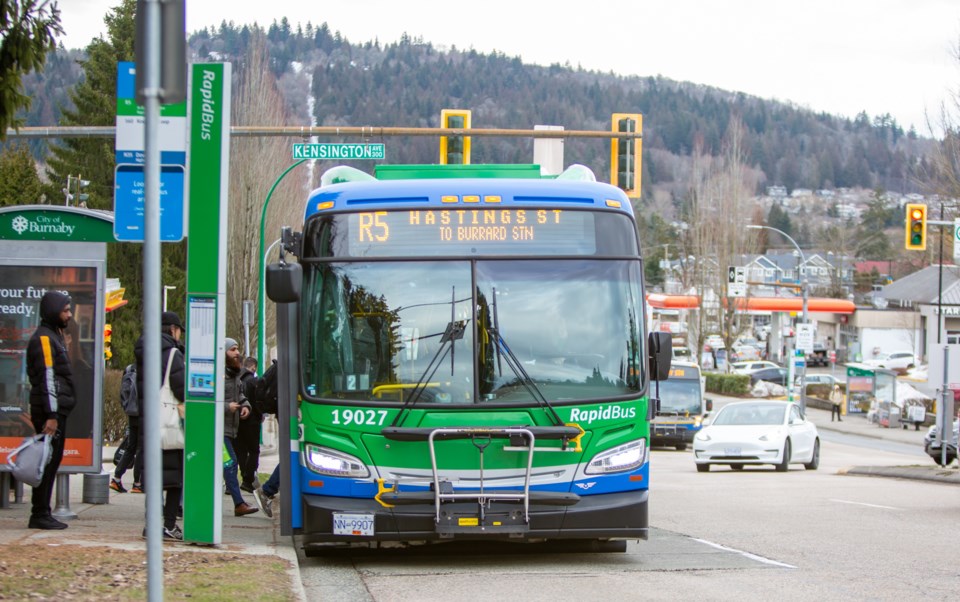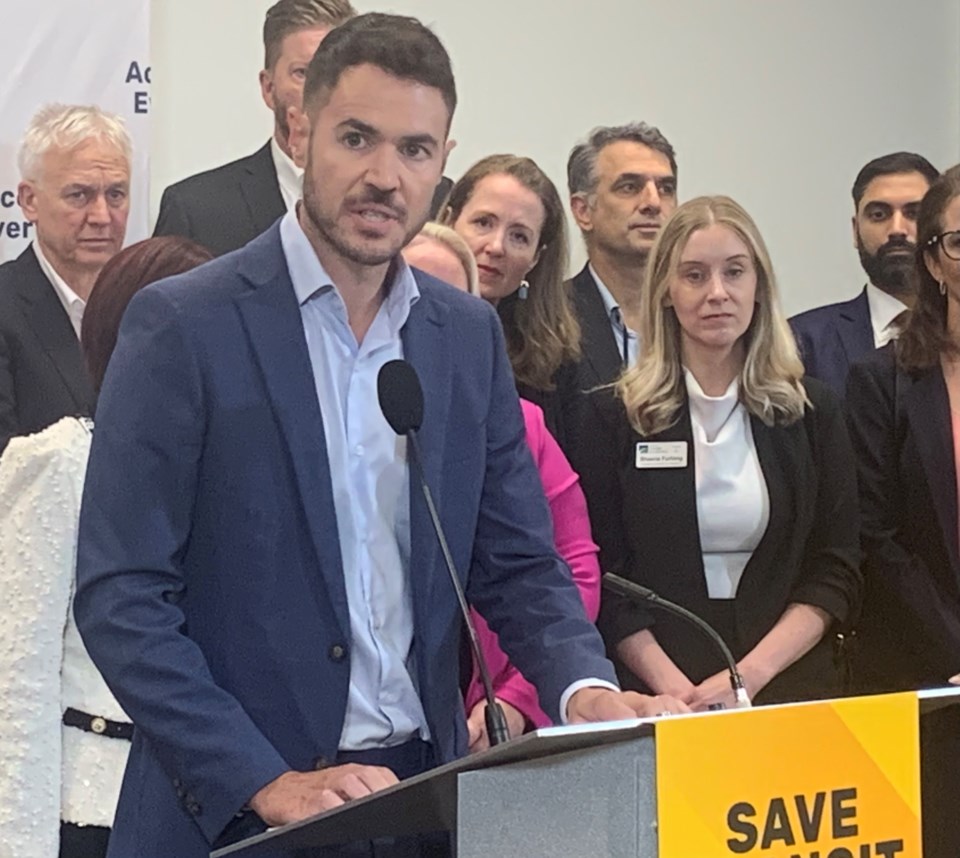TransLink is facing a $600-million structural deficit that means Lower Mainland bus service could be cut after 8 p.m. and SkyTrain service could be rolled back by 30 per cent.
Metro Â鶹´«Ã½Ó³»mayors gathered at the annual general meeting of the Union of B.C. Municipalities in Â鶹´«Ã½Ó³»said the region’s transit system is in trouble and needs funding commitments from the province before cuts begin to impact communities and the economy.
“Metro Vancouver’s transit system is under threat due to a lack of funding,” said Port Coquitlam Mayor Brad West Sept. 17 as the region’s mayors and other transit advocates stood behind him.
West, chair of the Mayors’ Council on Regional Transportation, said TransLink faces a structural deficit of $600 million.
“We are facing drastic cuts,” he said. “It would be disastrous to our economy. It would be disastrous to our region.”
He said the challenge to parties vying to form government in the Oct. 19 provincial general election is not a bluff or a ploy.
West said he wants to hear from NDP Premier David Eby and Conservative Party of B.C. Leader John Rustad on what they intend to do to save the system.
West stressed a recent survey showed 70 per cent of Metro Â鶹´«Ã½Ó³»residents believe transit is an important issue for the upcoming election.
But, he said, without new funding, bus service could be cut after 8 p.m., specifically in areas such as Langley, the North Shore, Maple Ridge and Delta.
And, he said, SkyTrain service could be cut by 30 per cent.

'Nightmare scenario'
It was July when the ominous landed with a thud on mayors' desks saying, “transit reductions would be in the range of 45-50 per cent overall and include elimination of entire routes plus significant reductions in frequency and start/end times of service.”
“This would include cancelling approximately 145 bus routes, significantly reducing SkyTrain, SeaBus and HandyDART service, and potentially eliminating the West Coast Express," the report said. "Funding for walking, cycling and roads programs would also be cut.”
West said if a new funding model isn’t in place by 2025, the region faces “a nightmare scenario.”
“I urge the party leaders to say exactly what you intend to do to save transit,” West said.
He said the region’s residents can see full details of the mayors's demands at the
Asked if there was an appetite among the public for fare increases, West said the public understands the financing situation and that investment in transit has multiple benefits.
“What they don’t want is paying into a black box and not knowing what they’re going to get out of it,” West said.
West was supported by numerous mayors.
“Every political party needs to recognize that if we want a healthy, livable and more affordable region, we need to invest in transit,” said Richmond Mayor Malcolm Brodie, vice-chair of the mayors' council.
“We cannot afford cuts to service, more overcrowded buses, more delays and more congested roads. The public understands this. Now, it’s time for the parties to listen.”
'A lifeline'
Bridgitte Anderson, president of the Greater Â鶹´«Ã½Ó³»Board of Trade, said transit issues impact the ability of people to get to work, which harms the economy.
“We cannot afford drastic cuts to our transit system,” Anderson said, “as they would have severe consequences for businesses, our economy and our people. We must find sustainable solutions to grow out the transit system in line with the needs of our expanding region."
Post-secondary student group representatives also stressed the need for transit in an already expensive region.
Ayesha Irfan of UBC’s Alma Mater Society said 53 per cent of students rely on transit. Irfan said a growing system contributes to access to education and affordable housing options for students.
Similarly, Joel Gilani, vice president of external and community affairs of the Simon Fraser Student Society, said public transit is the backbone of student transportation used by 73 per cent of students.
“Reliable transit is not a luxury,” Gilani said. “It is a lifeline.”


